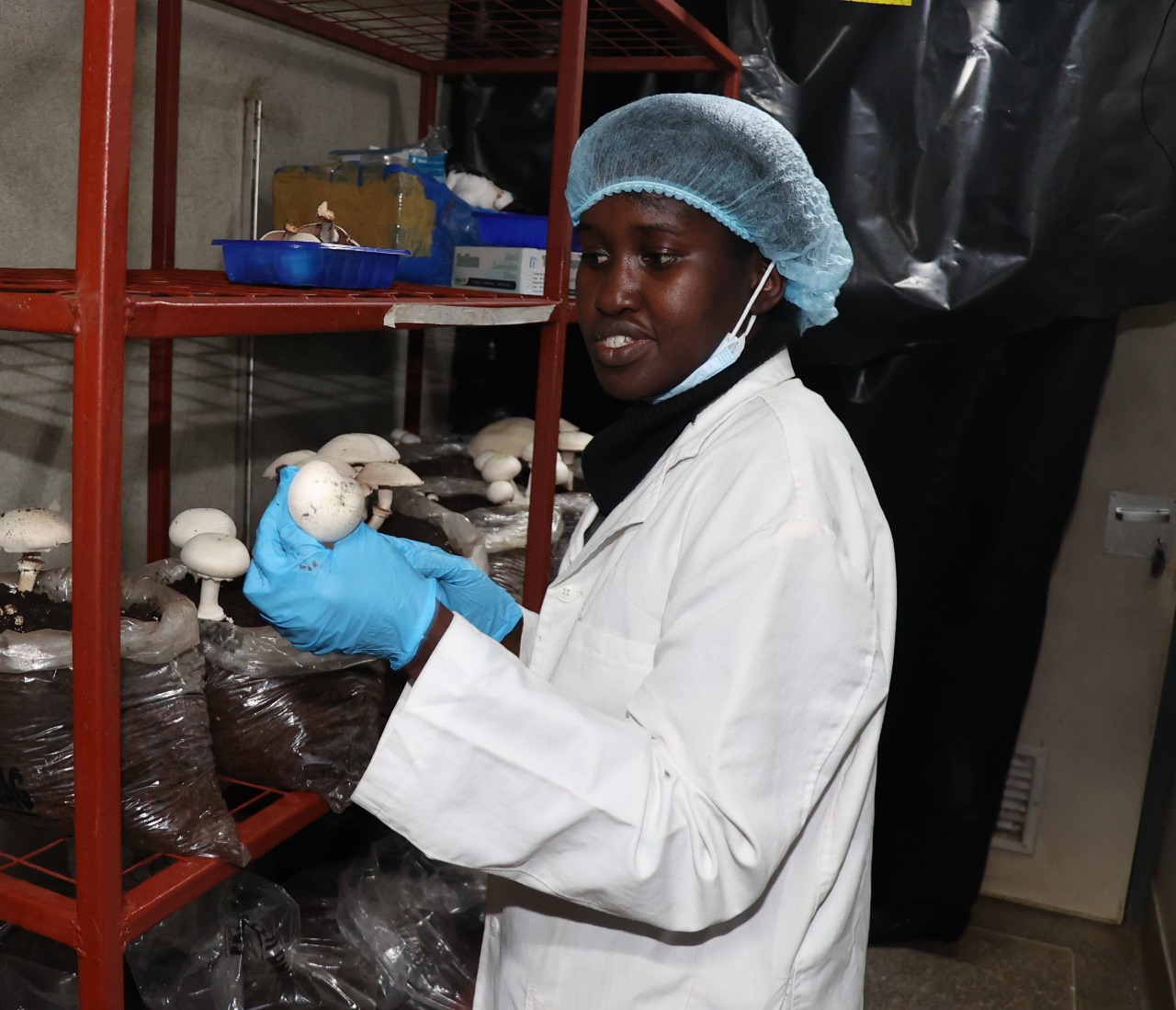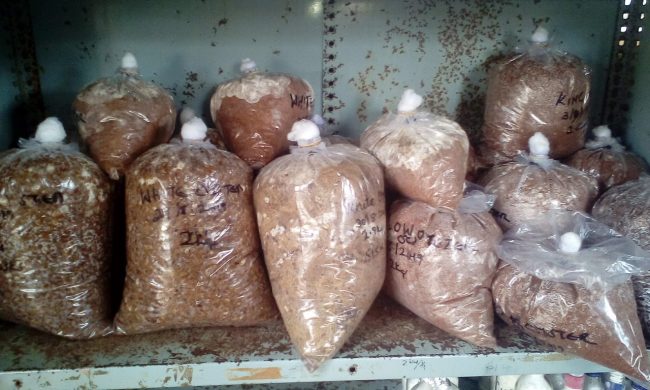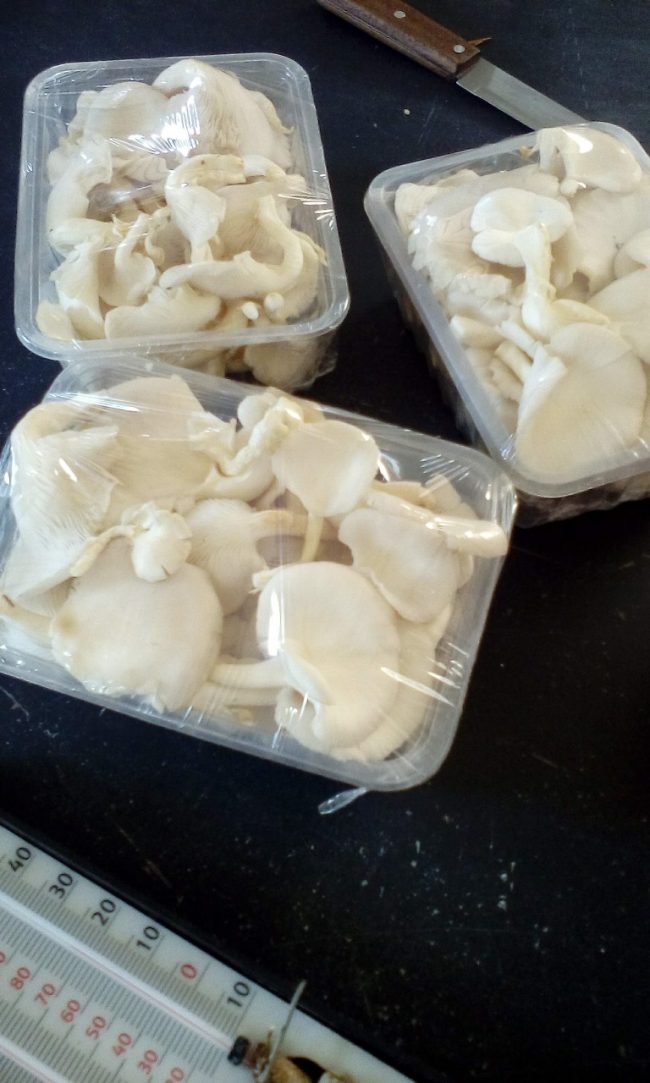
Mushroom Farming: Value Addition Goals Amidst High Yields
As an environmentally conscious youth, Ms. Loraine emphasizes the sustainable nature of mushroom farming as it enhances recycling
Ms. Kabaka Loraine defies the odds by venturing into mushroom farming with a focus on value-added products
Mushroom farming has gradually gained recognition as a sustainable means to address nutrition challenges while fostering growth and prosperity. Ms. Kabaka Loraine, an ambitious and determined individual, has committed herself to this venture, aiming to tap into the lucrative opportunities provided by value-added mushroom products. She draws her inspiration from Ecovative, an American company that produces leather using mycelium technology derived from mushrooms.
Recognizing the profitability of mushroom farming in Kenya, Ms. Loraine sought to acquire the necessary skills before delving into production. According to data from the National Farmers Information Survey, Kenya produces 500 tons of mushrooms annually, while demand stands at 1,200 tons. This significant gap, she believes, presents an opportunity for farmers to secure high yields and substantial returns if proper farming practices are implemented.
As an environmentally conscious youth, Ms. Loraine emphasizes the sustainable nature of mushroom farming. She notes that it allows for a complete production cycle, from cultivation to waste management. She explains that mushroom farming can be carried out in minimal space, requiring only a simple structure.
Moreover, mushrooms thrive on agricultural waste, contributing to a circular economy by breaking down organic matter. Once fully decomposed, the waste can either nourish the mushroom crop or be returned to the soil.
One of the main challenges she highlights is the lack of information on mushroom farming. After expressing interest in the field, her father supported her studies at the Jomo Kenyatta University of Agriculture and Technology, where she conducted research in a laboratory provided by the institution.

Ms. Loraine’s research focuses on using mushroom mycelium as an alternative to plastic bags commonly used in seedling growth and packaging, addressing environmental concerns. However, she admits that the initial capital investment and mastering the planting process were significant challenges. She recalls losing her first crop to an insect infestation.
“The first time I started mushroom farming, I encountered an insect called the fungus gnat, which destroyed my entire crop. I had to restart the process,” says Ms. Kabaka Loraine.
The Process of Establishing a Mushroom Farm
Ms. Loraine initially focused on mushroom farming for consumption but envisioned a future in research and development. While growing mushrooms for consumption is essential, she stresses that addressing the perishability of the crop requires a focus on value addition.
Meeting optimal growth conditions and maintaining appropriate humidity levels are crucial for successful mushroom farming.
For example, in Button mushroom production, the incubation phase requires temperatures between 23-25°C for the mycelium to colonize the substrate. Once the colonization is complete, the temperature must be reduced to 15-19°C to stimulate fruiting. Failure to manage these conditions accurately can lead to pest and disease outbreaks.

“Another common mistake, which I experienced during my initial trials, is improper pasteurization of the substrate,” she says. Inadequate pasteurization can lead to the growth of green mold (Trichoderma), which devastates mushroom crops.
A Passion-Driven Approach to Mushroom Farming
“As a researcher, the most rewarding aspect is watching the microscopic spores develop into a nutritious product,” says Ms. Loraine.
Her first successful harvest motivated her to continue pursuing the business. She takes pride in having created the prototype of biodegradable planters, although scaling up the project has been difficult due to funding limitations.
Ms. Loraine has been accepted at the International Centre of Insect Physiology and Ecology (ICIPE), where she is conducting further research on mushroom production. Her research aims to reduce input costs by using insect frass as a substrate, while also increasing yields.

Additionally, she is working on laboratory experiments to develop locally produced spores, which are more affordable than imported ones. This innovation could make mushroom farming accessible to farmers across diverse regions, including arid and semi-arid areas.
Furthermore, Ms. Loraine has partnered with Médecins Sans Frontières (MSF) to train some of their staff in mushroom farming. This initiative seeks to address protein shortages while recycling organic waste through mushroom cultivation.

